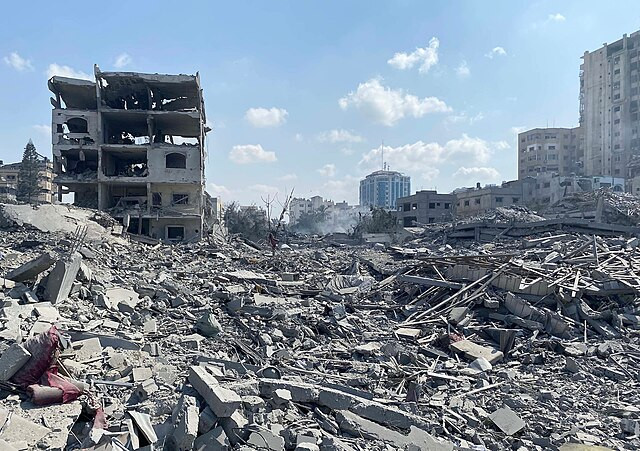Hamas announced on Tuesday that it will no longer engage in ceasefire negotiations with Israel, citing ongoing military operations and humanitarian deprivation across Gaza. The declaration follows Israel's ultimatum that a failure to release 10 hostages in exchange for a 45-day ceasefire would trigger an expanded offensive, including territorial seizures and disruption of humanitarian aid distribution.
"There is no sense in engaging in talks or considering new ceasefire proposals as long as the hunger war and extermination war continue in the Gaza Strip," senior Hamas official Basem Naim told AFP. Naim urged international actors to pressure the government of Israeli Prime Minister Benjamin Netanyahu to end the "crimes of hunger, thirst, and killings."
Israel's security cabinet approved the new plan Sunday night, and officials briefed on the strategy said it includes "seizing and holding territory in Gaza, moving the Gazan population southward for their protection, preventing Hamas from distributing humanitarian aid, and launching powerful strikes against Hamas." Netanyahu said the plan differs from earlier operations by "shifting from targeted raids to seizing territory and maintaining control over it."
The humanitarian crisis in Gaza has deepened significantly. A total blockade imposed by Israel on March 2 has brought food distribution to a halt, according to the Palestine Red Crescent Society. Food supplies in Gaza have now "completely run out," the organization reported, warning that more than a million displaced residents face extreme famine risk.
The International Committee of the Red Cross also warned of the deteriorating situation. "The level of need among civilians in Gaza right now is overwhelming," said ICRC spokesperson Christian Cardon. "Under international humanitarian law, Israel has an obligation to use all means available to ensure that the basic needs of the civilian population under its control are met."
According to Al Jazeera, residents in Khan Younis and Gaza City are suffering from acute malnutrition and lack of medical care. Aya al-Skafy said her four-month-old baby died last week due to malnutrition, weighing just 2.8 kg (6.2 lbs). "She suffered from blood acidity, liver and kidney failure, and many other complications," al-Skafy said.
Israel has reportedly circulated a proposal to replace UN aid efforts with a U.S.-led distribution model. The plan would limit Gazan families to one food parcel per week via designated collection hubs and cap aid trucks at 60 per day - a fraction of the 600 previously estimated as necessary by humanitarian groups. Aid agencies within the UN have rejected the plan, calling it a "pressure tactic."






